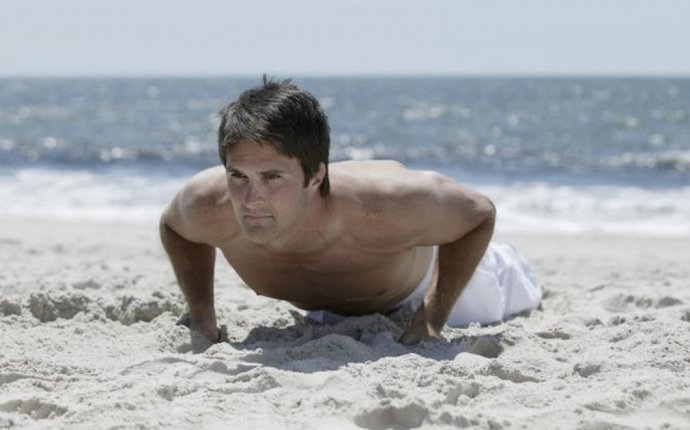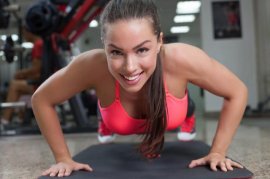
Building chest muscles without weights
 It doesn't take a gym membership or even a set of dumbbells to work your abdominal and chest muscles. In fact, it doesn't even take separate exercises. A number of movements work both the abs and the pecs at the same time without requiring anything more than your body weight.
It doesn't take a gym membership or even a set of dumbbells to work your abdominal and chest muscles. In fact, it doesn't even take separate exercises. A number of movements work both the abs and the pecs at the same time without requiring anything more than your body weight.
A smart fitness move is one that requires more than one muscle group, such as the plank. A small study published in 2011 in Medicine & Science in Sports & Exercise determined that the forearm plank required more than two times the average activity of the rectus abdominis, external abdominal obliques and the lumbar erector spinae compared to a traditional trunk flexion — i.e. a crunch. Planks also require your chest muscles to activate to keep your body elevated.
To properly perform a plank, lie on your stomach with your face down. Position your elbows close to your sides, directly under your shoulders, with your palms down. As you contract your ab muscles, prop yourself up on your forearms. Keep your head to your feet in a straight line, resisting the urge to let your glutes pop up or sag.
Make it harder: For a little extra oomph for your core and chest muscles, try Spiderman planks. Instead of resting on your forearms, push yourself up so you're balancing on your hands and toes. Bring the left knee toward the outside of your left ankle, hold for one count and return it to the starting position. Repeat on the right side. Aim for 20 alternating reps.
Read More: Lower Chest Exercises at Home with No Weights
Though push-ups are often considered solely a chest exercise, they also require a surprising amount of muscle activation from your core. The most effective push-up, however, relies on using proper form, which includes:
- Keeping your body in a straight line, without sagging or lifting your hips — this is what primarily targets the ab muscles.
- Keeping a wide hand position, which activates the chest muscles, versus a narrow-grip push-up, which activates the triceps.
- Using a full range of motion to complete an entire push-up, rather than half a rep.
If you can't yet master a full push-up, start with elevated push-ups — that is, with your hands on a bench, table or other elevated surface — or by resting your knees gently on the ground.
Push-Ups Photo Credit webphotography/iStock/Getty ImagesCombine the push-up and the plank into one move that blasts the abdominal and chest muscles. As a bonus, this exercise also works your shoulders.
Start in a push-up position, with your hands directly under your shoulders and your legs stretched out behind you. Next, lower yourself down to forearm plank position by dropping one elbow at a time. Reverse the movement by returning your arms to the full extended position, one at a time.
If you do this move quickly enough, you'll not only work your chest and shoulders, but get your heart pumping for a little cardio exercise, too.
Start in a standing position with your feet a few inches apart. Contract your abdominal muscles and exhale. As you do this, bend forward from the hips and lower your upper body toward the floor until you can place the palms of your hands in front of you. Try to keep the spine flat while doing this.
Next, slowly walk your hands forward, letting your heels rise off the floor. When you reach a full plank position, complete one full push-up. Slowly walk your hands back, reversing the exercise until you're in a standing position again.








